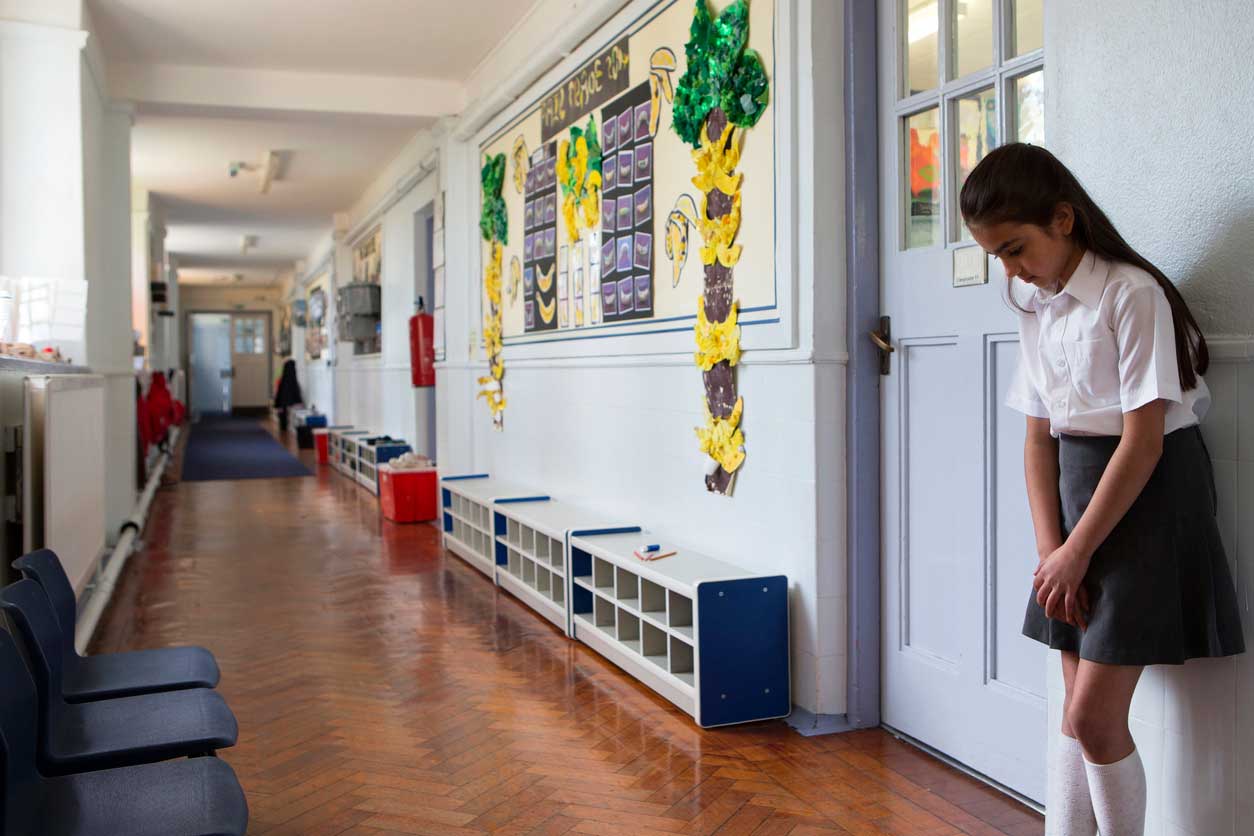OUR FEATURED SERVICES
Students deserve passionate legal advocates if their full potential is not being realized within a school environment. It can feel overwhelming to challenge the practices and behaviors of any school district, especially where educational laws are so specialized. We encourage all parents to take that first positive step towards vindicating their student’s rights, and contact Sierra Education Law today.

SPECIAL EDUCATION
Federal Law classifies 13 types of disabilities that qualify students to receive a special education. The disabilities defined by IDEA include autism, deafness, blindness, and speech impairment. However, the severity level of each of the 13 different types of disabilities is the litmus test for children to receive special education benefits. States must follow the special education criteria established by federal law, but states possess the legal flexibility to define who qualifies for each of the 13 disability types defined under federal law.
Some common examples of conditions qualifying for individualized educational plans include:
- Autism
- Deafness, Blindness, Speech Impairments
- Cognitive or Physical Impairments
THE SPECIAL EDUCATION BILL OF RIGHTS
Parent Involvement
IDEA clearly spells out the rights of parents to participate in every phase in the development of an Individualized Education Program (IEP). Until the passage of IDEA, most parents were not allowed to make decisions that influenced their children’s education progress.
Independent Educational Evaluation
An Individual Educational Evaluation (IEE) presents information that discusses a child’s academic skills and the needs the child has for special education enrollment. Parents have the right to put their child through an IEE that complies with IDEA guidelines.
Written Notice
Schools that want to add, deny, or change services that comprise an IEP must inform parents in writing. Many parents have won civil judgments against schools because school administrators failed to provide written notices of IEP changes, even though the changes were legally valid under IDEA.
Parental Consent
Before a school or school district evaluates your child or creates special education services, parents have the right to be informed about what is to transpire.
Stay Put
Until the passage of IDEA, schools were allowed to place children in special education programs even during the resolution of formal complaints submitted by parents. The “Stay Put” provision within IDEA allows your child to remain in his or her current educational environment until you and the school move through the dispute resolution process.
Time is limited to assert your rights. Get Help Today


DISTRICT LAWSUITS
When a student’s rights have been violated at school for whatever reason, it may be appropriate to pursue legal action against the wrongdoers. Suing a school district is always a last resort for parents, and the decision to do so shouldn’t be taken lightly. While many laws permit parents to recover attorney’s fees if they win, the interim emotional and financial stress may become significant. Ultimately though, courtrooms can be a parent’s best friend.
Court’s have the authority to hold school districts accountable and ensure parents and students are compensated for all harm caused.
Benefits of a lawsuit include:
- Full compensation for past, present and future educational services, pain and suffering, injuries and more
- Forcing a school district to do the right thing, even when they have refused responsibility
- Possibility of attorney fee recovery, so no ultimate cost to pursue
Time is limited to assert your rights. Get Help Today


STUDENT ADVOCACY
Ideally, student achievement should be pursued proactively, and on an ongoing basis. Student Advocacy is the cornerstone concept of this important process, and involved communication and collaboration with school officials, before any rights are violated or students are harmed. Student advocacy can take many forms, but typically involves ensuring student perofrmance is being maintained, while diagnosing any deficiency quickly to ensure outcomes remain positive.
Students with certain conditions that qualify under federal law have certain legal rights. In many instances, it can be difficult for a parent to navigate and demand these rights against a school district, which may have its own agenda. Discussing your student’s situation with an education law attorney may be all it takes to confront the school district with the knowledge you need to maximize your child’s performance in school. These basic rights, at a minimum, include:
- Free Appropriate Education
- Least Restrictive Environment
- Early Intervention
- Transition Planning
Time is limited to assert your rights. Get Help Today


CIVIL RIGHTS VIOLATIONS
Just because your son or daughter is in school, it doesn’t mean they give up their constitutional rights. In fact, school systems are considered government entities that are required to abide by the consitution at all times. This means that if a school system eganges in unlawful conduct, they can be subject to a lawsuit and damages. Additionally, parents often have the right to force the school district to pay their attorney’s fees if they win, and the student’s rights have been violated. Some common civil rights violations in the school setting include:
- Unreasonable restraint (forcefully holding children, locking them up, etc.)
- Sexual harrassment and other physical injuries
- Discrimination on the basis of gender, race, ethnicity etc.
If your child has been forcefully restrained for an unreasonable purpose, injured due to physical assualt by a teacher, or subjected to testing, physical examinations etc. without their consent, it is likely a school has violated their civil rights.
Attorney’s are uniquely suited to demand justice when such violations occur. Even where a school district denies responsibility, refuses compensation and attempts settlement, the court system can force them to pay for their mistakes. Many laws now provide that parents can recover attorney’s fees as well, so fighting back and demanding compensation may not require any ultimate out of pocket cost.
Time is limited to assert your rights. Get Help Today


SCHOOL MISCONDUCT
The primary objective for establishing a student code of conduct is to follow state and federal legal statutes and prohibit the violation of student Constitutional rights. Violence and bullying are two types of conduct prohibited by state/federal laws and student conduct codes.
Additionally, if a student is punished for any reason, there may be underlying mental or physical causes that warrant further investigation. It is likely that the student is suffering from an indiagnosed exceptionality, the treatment of which could prevent further issues. It is imperative that parents demand evaluations of their child in these situations.
Schools have considerable flexibility under education law to punish students for violating codes of conduct. Although most school districts have outlawed physical punishments, teachers and administrators still have powerful tools to reprimand students for misbehavior. Detention, which is the practice of requiring students to remain on campus after school, remains a strong deterrent to prevent violations of student codes of conduct. Other ramifications of violating a student code of conduct include verbal and written warnings, meeting with parents, and as a last resort, school suspension.
Here are some common student codes of conduct that address behavior issues:
- Truancy
- Coming to school without bringing the required school supplies
- Clothing that violates the school dress code
- Leaving school grounds without asking for permission
- School property damage
- Vulgar and/or abusive language
Time is limited to assert your rights. Get Help Today


MEDIATION AND DUE PROCESS
Due process provides parents with the legal recourse to challenge school rulings that pertain to special education matters. Under IDEA, parents must file written complaints to get the legal ball rolling. Schools have up to 15 days after the filing of a written complaint to conduct a meeting referred to in IDEA as a “resolution session.” After the resolution hearing, parents have the legal right to request a due process hearing, which is modeled after civil courtroom proceedings.
Parents displeased with the outcome of a due process hearing have the legal right under IDEA to pursue civil action in a federal court.Parents that win civil lawsuits or due process cases have the right to receive compensation for attorney fees. This clause has deterred many schools from proceeding with civil and due process cases.
Unique California laws make it imperative for parents to seek counsel for legal clarification. Some states allow for state-level appeals to contest due process hearings mandated under IDEA. Moreover, the legal stipulation for schools to use “clear language” often requires the services of an experienced special education attorney to interpret.
If you have questions about the special education bill of rights found within IDEA, schedule an initial free consultation with Sierra Education Law to discuss your legal options.
Time is limited to assert your rights. Get Help Today

OUR FEATURED SERVICES
LOW OR NO COST SERVICES
In most cases, California and federal law requires the offending school to pay your attorney's fees. Whether through, court, mediation or settlement, you may be entitled to full attorney fee reimbursment
YOU MAY BE OWED THOUSANDS
Many state and federal laws permit full recovery of past and future educational services, including housing, transportation and more. Sometimes penalties and compensation are available for student harm as well.
WE FOCUS ON STUDENTS
Sierra Education Law only focuses on protecting students and vindicating their rights. Our dedication to children and young adults is not diluted by other legal demands.
15
Days To Provide Assessment Plan After SPED Referral
10
Days To Conduct Manifestation Determination For Suspensions >10 days
5
Maximum Days To Deliver Student Records to Parents Upon Request
60
Maximum Days after Assessment to Conduct IEP Meeting
Ready to fight back against a public or private school? We can help.
